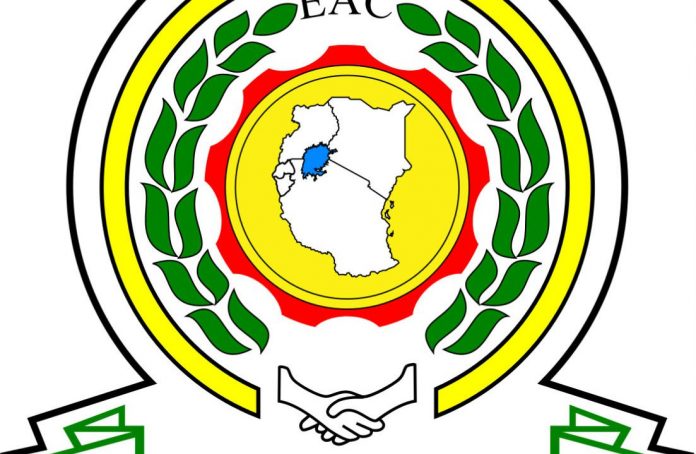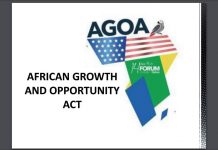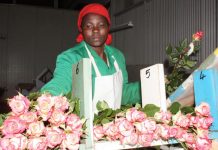Trade – EAC/EU
Five East African countries — Kenya, Tanzania, Uganda, Rwanda and Burundi — reached agreement with the European Union to renew a duty-free export regime that allows them to sell fruits, vegetables and flowers to the 28-nation EU bloc. The agreement is expected to take effect from 2015, following ratification by the five East African Community members and by the EU Parliament. Meanwhile, the payment of customs duties on those items entering the EU will continue through the end of 2014. The duties, which were imposed after talks between the two sides failed to meet a September 30 deadline, raise the price of the East African products, making them less competitive in EU markets. The export of horticulture products is a key source of foreign exchange for the East African countries.
Economic collaboration – EAC/Japan
The East African Development Bank and the Japan International Cooperation Agency agreed to collaborate on identifying and financing projects to support economic and social development in the East African Community. The two institutions will organize joint or multilateral actions on development issues through seminars, research, and knowledge management, and will work together to identify projects in economic and social infrastructure development, private sector development, education, health, poverty reduction. Other areas of collaboration include technical assistance on development projects, capacity building of each organization (staff training, sharing of research, project and development experiences in East Africa); and accelerating private sector activity through seminars and consultation. Funding commitments will be made in separate agreements between the two sides.
Paying taxes – Kenya
Bharti Airtel, Kenya’s second largest mobile network, partnered with the Kenya Revenue Authority (KRA), to allow Kenyans to pay their taxes via Airtel’s mobile money service. Airtel Money customers can enquire about KRA services, generate KRA payment reference numbers, and make payments using the shortcode *572#. To make payments, Airtel Money subscribers will need a KRA payment reference number, which can be acquired on the KRA website or via mobile. Airtel says payments will be cleared, processed and credited to the KRA account in real-time. The revenue authority has also made available traffic revenue service payments e-slip generation through mobile, allowing users to apply for driving licenses, transfer vehicle ownership, and make motor vehicle inspection payments. Airtel says it will continue to partner with corporate and government entities as it seeks to “revolutionize” its services. The company’s acquisition of yuMobile earlier this year grew its subscriber base in Kenya to 7.85 million from 5.3 million.
Electricity distribution – Nigeria
Nigeria says it needs an annual investment $1 billion “over a few years” to fix its electrical transmission network and position itself for global competitiveness. Power Minister Chinedu Nebo said the country is in discussion with potential investors on offers of more than $20 billion for the state-owned Transmission Company. He described the power transmission network as “obsolete,” “broken,” and “the weak link” in Nigeria’s electricity supply industry. While the liberalization of power generation in 2013 and the sale of power stations to private investors have improved power generation, transmission continues to limit distribution, in turn causing much of the generated power to be wasted. Transmission Company currently has a transmission capacity of 5,500 megawatts, a little over 68 percent of its installed generation capacity of 8,000 megawatts. The government says it wants transmission capacity to exceed 6,000 megawatts by 2016.
Financial Inclusion – Nigeria
The Central Bank of Nigeria is planning a new campaign to raise financial inclusion to 80 percent by 2020, reducing the percentage of Nigerians excluded from financial services from 46.3 percent in 2010 and 53 percent in 2008. The bank has been at the forefront of driving financial inclusion in Nigeria through such initiatives as the Financial Inclusion Strategy, the Cashless Policy, and the Micro, Small and Medium Enterprises Development Fund. Other initiatives, such as the new Electronic Identity Cards championed by the National Identity Management Commission, are aimed at giving Nigerians greater access to financial services. Under its proposed campaign, the bank hopes to boost the percentage of adult Nigerians with access to payment services to 70 percent; increase those with access to savings to 60 percent; and those with access to credit, insurance and pensions to 40 percent. At the same time, ATMs should increase to 203.6 units per 100,000 adults; POSs to 850 units; and mobile agents to 62 units.
Agricultural development – Pan Africa
The Alliance for a Green Revolution in Africa and the Technical Centre for Agricultural and Rural Cooperation, an organization established under the Lomé Convention between African, Caribbean and Pacific countries and the European Union, agreed to jointly spearhead the use of innovative approaches to agricultural development, including promoting more inclusive agricultural financing, use of information and communication technologies across value chains, structured trade tools and advocacy for policy reform. Through this collaboration, sector players will be encouraged to adopt structured trade tools such as Grades & Standards, Warehouse Receipts Systems and Commodity Exchanges, which will help to enhance regional agricultural trade. Other aspects include: increasing the interaction between producer organizations, youth and women groups, relevant professional associations, analysts and policymakers for the development of evidence-based agricultural development policies; and sharing of knowledge jointly generated by both organizations as best practices and lessons learned to enhance smallholder agriculture.
Accelerating Entrepreneurship – Pan-Africa
African Leadership Network (ALN) launched an accelerator program to help African entrepreneurs grow their seed-stage ventures into regional powerhouses. The new program, titled ALN Ventures, will identify the most outstanding early-stage African start-ups with major growth ambitions, prepare them through a tailored program, and connect them to the immense financial and social capital (mentorship, relationships, potential customers, and more) that exists within ALN. Development and promotion of entrepreneurs is a core ingredient of ALN’s goal of catalyzing prosperity in Africa. ALN plans to accelerate 50 companies in the first three years under the new program, and build a robust ecosystem where start-ups with pan-African ambitions can thrive. ALN will select the program’s inaugural class of entrepreneurs in January 2015. Those interested in learning more about being a potential investor, mentor or partner should contact ALN via email at ventures@africanleadershipnetwork.com.
AGOA effectiveness – Sub-Saharan Africa
Sub-Saharan Africa (SSA) exports to the United States have been declining since 2011, but figures show a positive trend in textile and apparel exports to the US, says Rafiq Raji, Africa economist at Standard Chartered. SSA textiles and apparel exports to the US increased by 11 percent in 2013, thanks to preferential access to US markets under the Africa Growth and Opportunity Act (AGOA). However, at $40 billion in 2013, total SSA exports to the US valued 50 percent less than three years earlier and are set to decline further in 2014, especially with the drop in crude oil exports, which dominate SSA exports to date. With the US closer to becoming a net exporter of crude oil, thanks to increasing shale gas production, SSA crude oil producers have sought new customers in Asia. In July 2014, Nigeria did not ship a single barrel of crude oil to the US, marking the beginning of a trend that is likely to be pervasive amongst SSA crude oil producers, Raji says. Although US-SSA trade has been declining, the positive trend in light manufacturing exports (textiles and apparels) point to the effectiveness of AGOA, he insists.













